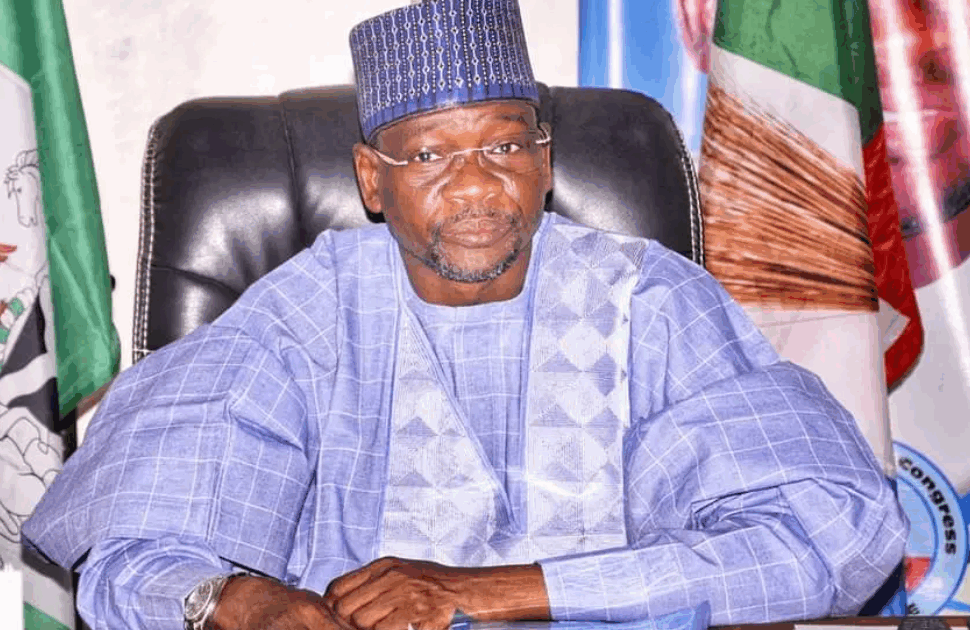The unexpected resignation of Abdullahi Ganduje as the National Chairman of the All Progressives Congress (APC) has sent ripples through the ruling party, triggering a swift succession process and fueling speculation about the underlying reasons for his departure. While no official explanation has been offered, insider sources suggest that internal political maneuvering and strategic positioning for the 2027 elections played a significant role. Ganduje’s exit has been linked to the ongoing debate surrounding the vice-presidential slot, with mounting pressure to retain the position within the North-West geopolitical zone, which Ganduje also represents. This regional concentration of power could necessitate a shift in the party chairmanship to maintain a balance of influence across different zones, potentially jeopardizing Ganduje’s position.
The APC Constitution, specifically Section 14(2)(iii), provides a clear pathway for succession in such circumstances. It empowers the Deputy National Chairman from the same zone as the outgoing chairman to assume the role in an acting capacity. Consequently, Bukar Dalori, the Deputy National Chairman (North), has stepped in to fill the void left by Ganduje’s resignation. This transition, while constitutionally sound, has nevertheless generated considerable surprise and speculation within the party ranks, as evidenced by the hushed activity surrounding the removal of Ganduje’s personal effects from his office at the APC national secretariat. The rapid and relatively quiet nature of the transition underscores the sensitivity of the situation and the potential ramifications for the party’s internal dynamics.
While Dalori’s assumption of the acting chairmanship provides immediate continuity, the party will need to address the vacancy permanently. Party insiders have already begun to speculate on potential successors, with former Nasarawa State Governor, Senator Tanko Al-Makura, emerging as a prominent contender. Al-Makura’s extensive political experience and established position within the party make him a natural candidate for consideration. However, the process of selecting a new national chairman is likely to be influenced by a complex interplay of factors, including regional representation, political alliances, and the strategic goals of various factions within the APC. The ultimate choice will have significant implications for the party’s direction and its prospects in future elections.
Ganduje’s resignation and the subsequent succession process have created a moment of uncertainty for the APC. The party must navigate this transition carefully to maintain internal cohesion and avoid exacerbating existing tensions. The decision regarding the vice-presidential slot will undoubtedly influence the selection of the new national chairman, as the party seeks to balance regional representation and maintain a semblance of unity. The jockeying for position within the party is likely to intensify as the 2027 elections draw closer, and the choice of leadership will play a crucial role in shaping the APC’s electoral strategy and its ability to retain power.
The unexpected nature of Ganduje’s resignation has fueled speculation about potential internal disagreements or power struggles within the APC. While the official narrative remains focused on political realignments and strategic positioning for future elections, the lack of a clear explanation has left room for conjecture. Some observers have suggested that Ganduje’s departure may be linked to unresolved tensions within the party or a desire to avoid being drawn into potentially damaging political battles. Whatever the underlying reasons, Ganduje’s exit serves as a reminder of the dynamic and often unpredictable nature of Nigerian politics.
The unfolding events within the APC highlight the inherent challenges of managing a large and diverse political party. Balancing the competing interests of different regions and factions requires delicate political maneuvering and a willingness to compromise. The party’s ability to navigate this period of transition successfully will be a crucial test of its internal strength and its preparedness for the challenges that lie ahead. The selection of a new national chairman will be a key moment in this process, and the chosen candidate will have a significant impact on the APC’s future trajectory.


